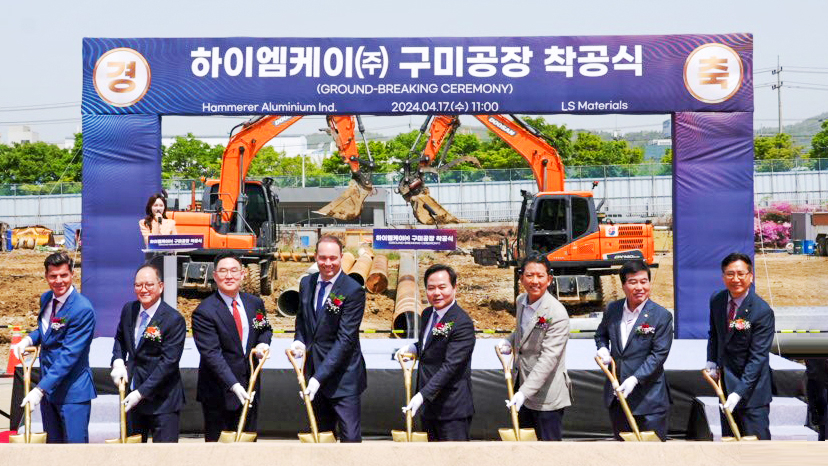LS Materials breaks ground on EV parts plant
Korean company aims to become global aluminum parts leader in EV sector
By Kan Hyeong-wooPublished : April 17, 2024 - 15:53

LS Materials’ subsidiary HAIMK began construction of an aluminum parts plant for electric vehicles in Gumi, North Gyeongsang Province, on Wednesday.
According to LS Materials, the plant will begin the mass production of battery cases with an annual capacity that can be used for 300,000 EVs in the first quarter of next year. The product is a high-strength aluminum component that protects the battery from outside impact without supplementary steel material.
“Our products will be the only kind in Korea that meet automakers’ quality standards,” said Hong Young-Ho, CEO of LS Materials.
“We expect to generate over 200 billion won ($144 million) in revenue in 2027.”
LS Materials said HAIMK will invest 75 billion won to build the 16,305-square-meter building in the Gumi National Industrial Complex.
HAIMK is a joint venture established between LS Materials and Austria’s Hammerer Aluminium Industries, or HAI, in 2023. HAI, a global leader in the EV aluminum parts sector, supplies products to European EV makers such as Mercedes-Benz and BMW.
LS Materials said that the portion of aluminum parts in EVs has been on the rise as automakers try to reduce the weight of EVs, adding that it will expand the areas of aluminum parts in EVs beginning with battery cases and take the lead in the related market.



















![[Today’s K-pop] Treasure to publish magazine for debut anniversary](http://res.heraldm.com/phpwas/restmb_idxmake.php?idx=642&simg=/content/image/2024/07/26/20240726050551_0.jpg&u=)